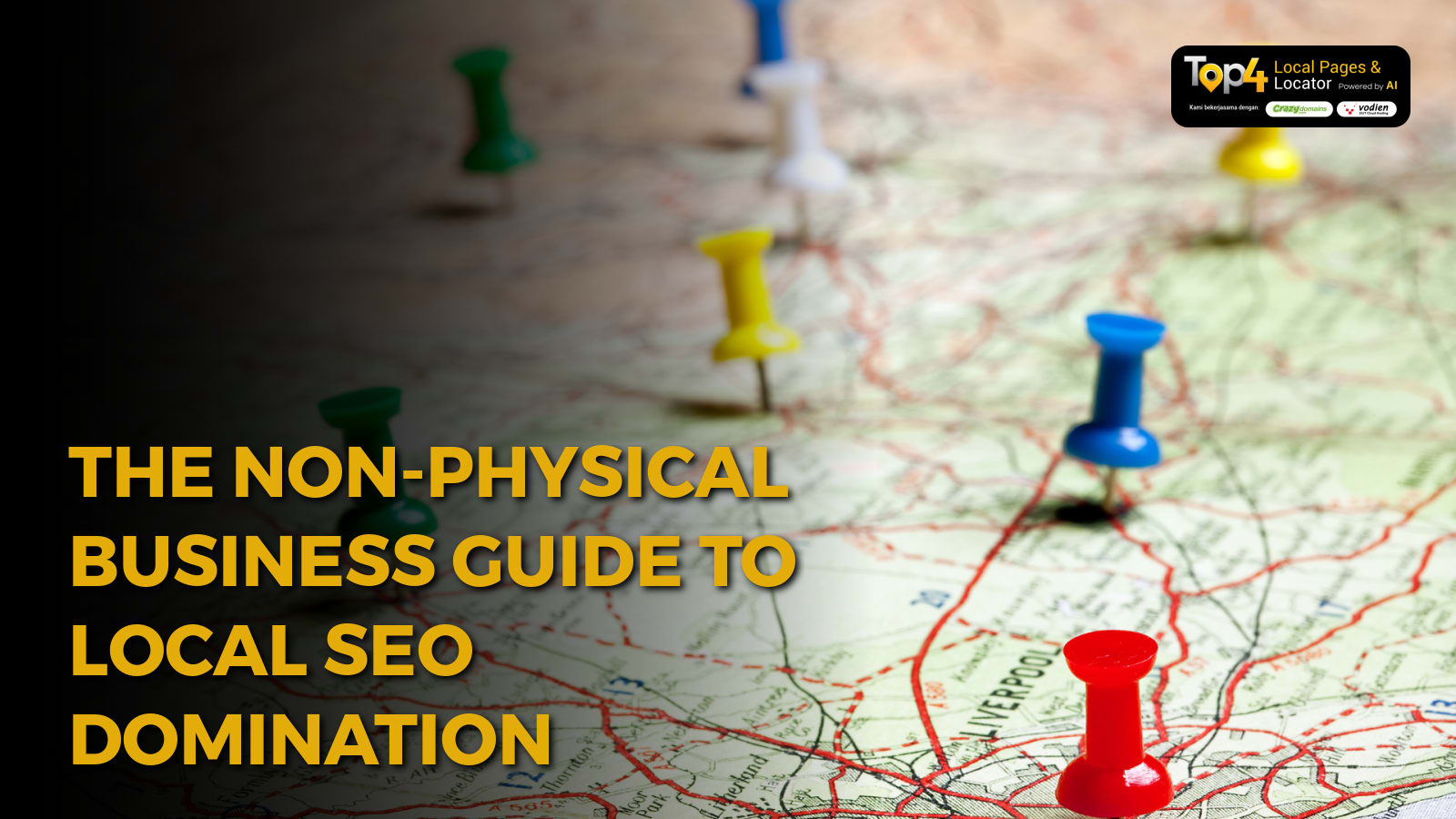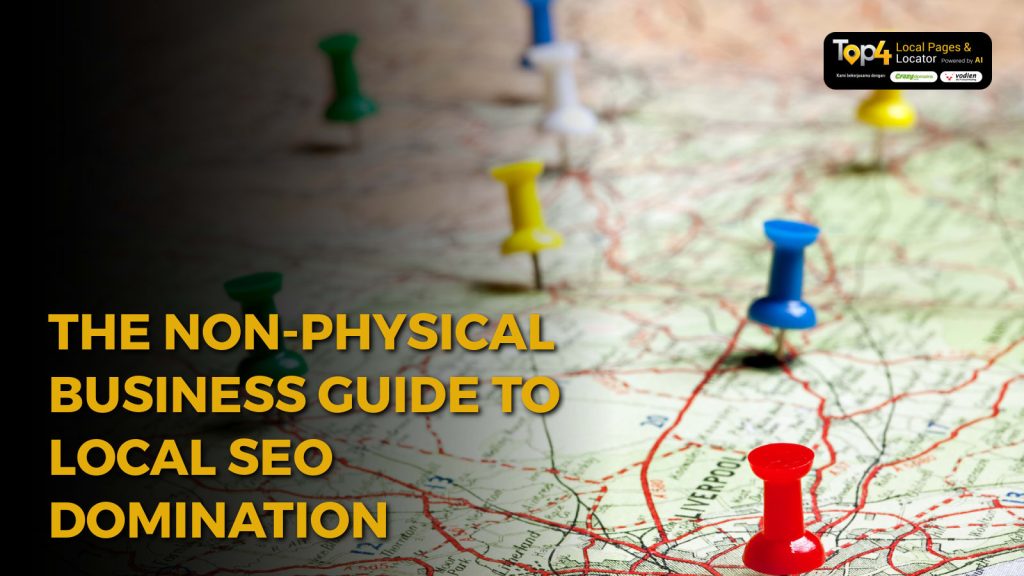
For non-physical businesses, gaining online visibility has always been a challenging endeavour, especially in the realm of local SEO. Most think that without a brick-and-mortar presence, it’s nearly impossible to compete in local search results, but that’s not the case. With the right strategies, even businesses without physical locations can make their mark and attract more customers. But how do you effectively leverage local SEO for non-physical businesses to drive traffic and boost your online presence?
In today’s digital age, the landscape has dramatically shifted. No longer is a traditional office or storefront necessary to rank in local search. Google’s algorithm is evolving, and it’s becoming more inclusive of service-based businesses, freelancers, and online enterprises. The key challenge is to understand the latest SEO tactics and apply them effectively, so your business remains visible and competitive in search rankings. The good news is that with the right approach, you can handle local SEO without a physical address and still succeed in your local marketing efforts.
Understanding Local SEO for Non-Physical Businesses
Local SEO, by definition, focuses on optimising your business for search queries that have geographical intent. However, many businesses, such as online services or companies with remote teams, don’t have a physical location to anchor their search results. This creates a unique set of challenges. Unlike traditional brick-and-mortar businesses that can easily claim and optimise a Google Business Profile, non-physical businesses need to approach local SEO differently.
Even though your business may not have a physical storefront, local SEO is still critical because it helps you appear in search results where potential customers are looking for services within their area. Google's algorithm has advanced to the point where it considers many factors beyond just the physical address when determining local search results, including proximity, relevance, and the quality of online content. That’s why it’s important to tailor your strategies to match these changes.
How To Handle Local SEO Without A Physical Address
Many online businesses ask: “How to handle local SEO without a physical address?” One effective strategy is to focus on service areas. If your business provides services in specific locations, even without a physical office, you can still show up in local searches. This is done by specifying your service areas across your website and digital profiles. Ensure that your landing pages are optimised with location-based keywords, and don't shy away from using a service area in place of an actual address.
Creating localised content is another great way to overcome the absence of a physical address. When you tailor content around local news, events, or case studies that relate to your service areas, you increase your chances of being found by local searchers. It’s not just about keywords but about relevance and providing value to your audience.
Additionally, optimise your Google Business Profile by focusing on categories that reflect the services you offer. While you may not have a location to pin on Google Maps, you can still appear in search results for relevant local queries by selecting appropriate service categories and ensuring your business information is complete and accurate.
The Importance of Reviews and Local Citations
For businesses without a physical address, online reviews and local citations become even more important. Customer testimonials and ratings not only boost your credibility but also signal to search engines that your business is trustworthy and relevant to local customers. Encourage happy clients to leave positive reviews on platforms like Google, Facebook, or industry-specific directories. This can significantly improve your local search rankings.
Local citations, which refer to mentions of your business on other websites, are equally important. Even without a physical address, you can build citations by ensuring that your business name, phone number, and service areas are listed consistently across the web. Websites such as Yelp, industry-specific directories, or local chamber of commerce listings can offer strong signals to Google about your business’s legitimacy and relevance in local searches.
Building Localised Content
Localised content is key to succeeding in local SEO for non-physical businesses. You want to demonstrate to both Google and your customers that you’re an expert in the areas where you provide services. Blog posts, case studies, and customer stories tailored to specific locations are all effective ways to establish authority in local search.
For example, if your business serves multiple cities or regions, consider creating landing pages for each service area, complete with content that speaks to the unique needs of that local market. Not only does this show relevance, but it also helps you capture more local search traffic. Make sure to incorporate local SEO keywords naturally into your content, such as mentioning suburbs, landmarks, or nearby attractions in your articles and service descriptions.
Keep in mind that Google's algorithm values high-quality, authoritative content. By building a content strategy that centres around your service areas, you can rank higher in local searches without needing a physical location to anchor your business.
Leveraging Social Media for Local Visibility
Social media is another powerful tool for enhancing your local SEO strategy, especially for non-physical businesses. Platforms like Facebook, Instagram, and LinkedIn allow you to create business profiles that can be optimised for specific service areas. When you regularly post location-specific content or engage with local communities, you build brand awareness and trust.
One key advantage of social media is that it allows you to engage with your audience in real-time, which can be particularly helpful for local events or promotions. By actively participating in local online communities, you increase your chances of being noticed by potential customers in your service areas. It’s also beneficial for creating backlinks to your website, further boosting your SEO.
Conclusion
While non-physical businesses face unique challenges in implementing local SEO, it’s entirely possible to rank well in local search results with the right strategies. By optimising your service areas, creating localised content, building reviews and citations, and leveraging social media, you can establish a strong local presence without a brick-and-mortar location. The key lies in focusing on relevance, authority, and providing value to your target audience.
If you're a business owner looking to increase your visibility and attract more customers, Top4 Online offers a suite of AI-powered tools that can help you stand out in local search. Learn more by visiting Top4’s Insights and discover how we can tailor a strategy for your unique business needs. Ready to supercharge your local SEO efforts? Reach out to us at Top4 Online today!
To find out how we can help you with your Website + Marketing, using our unique location marketing platform called Top4 (Top4.online), get in touch today at www.top4marketing.com
AI-powered local pages for local marketing
Looking to build customer loyalty through social media? Don’t forget to add your business to Top4.online
Add your business, create your own digital store to sell goods and services, and share posts on social media. Promote your business on Google instantly! Should you need help with local digital marketing then view our new Google Marketing Platform and services Top4 Marketing
Get Found On Google, Promote Your Website, Get More Leads!
Our Digital Marketing Agency Services Across All Industries Include Search Engine Optimisation (SEO), Google Marketing, Website Design, Corporate Web Development, and local location-based marketing using our own Google Marketing Platform!

